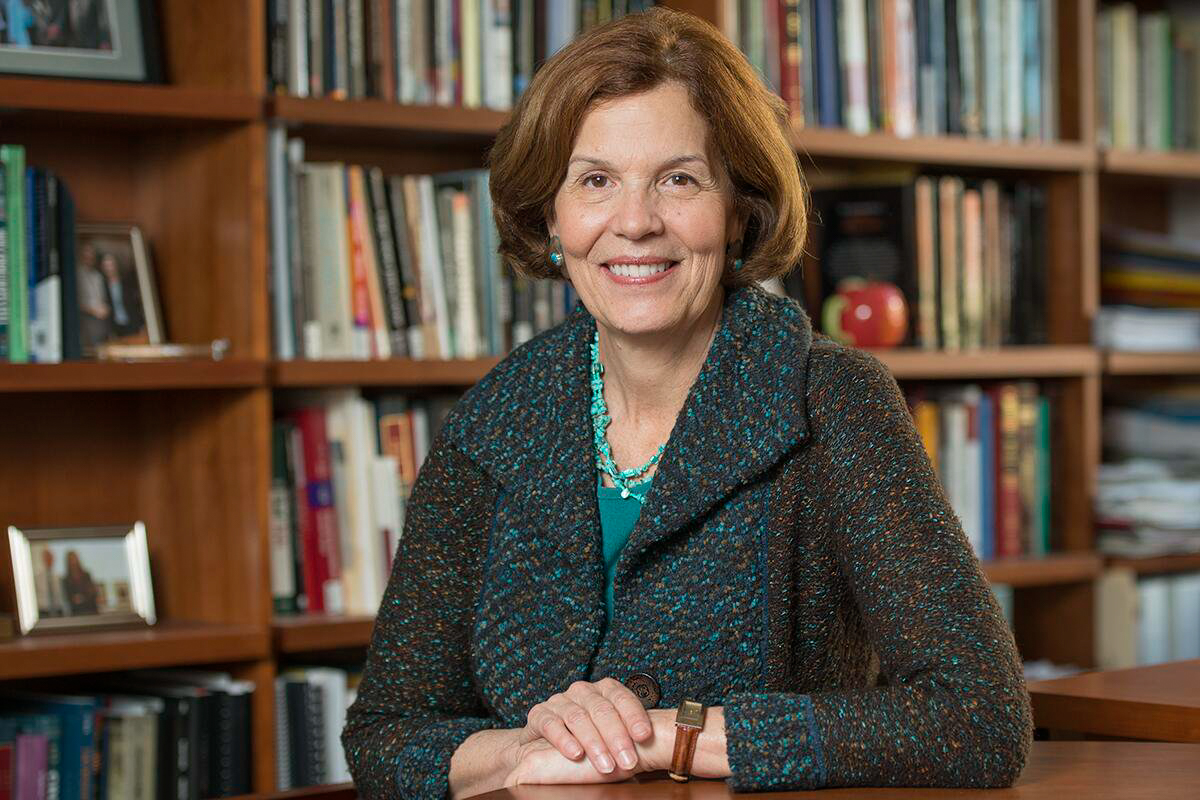Co-director of the Stanford Criminal Justice Center and prison reform scholar Joan Petersilia died on Monday, Sept. 23 at the age of 68. Petersilia, who was also the Adelbert H. Sweet Professor of Law, Emerita, had retired a year ago due to health reasons related to ovarian cancer.
Over the course of four decades, Petersilia wrote 11 books and conducted groundbreaking research on criminal justice and public policy. She was an academic government officials often turned to on policy issues relating to prison reform, prisoner reentry and the American incarceration system. For her work as a criminologist, she received the Stockholm Prize in Criminology in 2014, considered the Nobel Prize of the field.
“I have always considered myself an applied criminologist, and I believe that research is valuable only if it ultimately affects policy and practice,” Petersilia wrote, describing her role as a policy researcher in 2007. “I have tried to produce a body of research worthy of policy attention, and then searched for ways to position myself ‘front and center’ in policy circles, where I could interject my findings to influence policy directions.”
Petersilia joined Stanford Law School as a visiting lecturer in 2005 and became a faculty member in 2009. At the Law School, she taught classes with a focus on juvenile justice, prisons, reintegration, criminal sentencing and policy research. As faculty co-director for the Stanford Criminal Justice Center (SCJC), she produced non-partisan policy recommendations for public officials aiding the development of criminal justice policy.
Notably, in 2011, Petersilia led a practicum that provided data-driven analytics for how to most effectively pursue realignment for the California prison population following the passage of California’s Public Safety Realignment Law of 2011 (A.B. 109) — a state law that shifted some of the lower level offender population into county level rather than state level prisons. Her practicum’s clients at the time included Kamala Harris, who was serving as California Attorney General at the time, and the California Department of Corrections and Rehabilitation.
“Joan was a committed visionary who saw what is possible, even when others couldn’t see it. She energized and excited so many people around reforming the criminal justice system before it was even popular,” Harris said, remembering her time with Petersilia. “Her advice and insights on advancing the field of criminal law when I was Attorney General of California were invaluable and will serve me the rest of my career. California and the country is in her debt.”
Petersilia joined several other faculty members in condemning the Muslim Ban and calling on the University to take concrete action to support Stanford’s undocumented and Muslim student communities.
Petersilia’s education has taken her from an undergraduate degree in sociology at Loyola Marymount University in 1972 to a master’s in sociology from Ohio State University in 1974, and finally a doctorate degree in criminology, law and society from the University of California, Irvine in 1990.
After writing “When Prisoners Come Home” in 2003, a book about parole and prison re-entry, her work caught the eye of California Governor Arnold Schwarzenegger, so much so that he appointed her as a special advisor focusing on reorganizing juvenile and adult corrections and working with the California State Legislature to implement prison and parole reform. She also chaired Governor Schwarzenegger’s Rehabilitation Strike Team and was co-chair of California’s Expert Panel on Offender Programs.
She is survived by Steve Thomas, her husband, and her two sons Jeff and Kyle Petersilia. A memorial service at Stanford Law School will be held for Petersilia sometime in the fall. The Petersilia family has stated that remembrances may be made to Santa Barbara Special Olympics, “a group that held a special place in Joan’s heart.”
Contact Sean Lee at seanklee ‘at’ stanford.edu.
